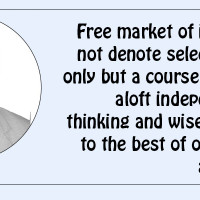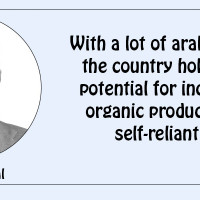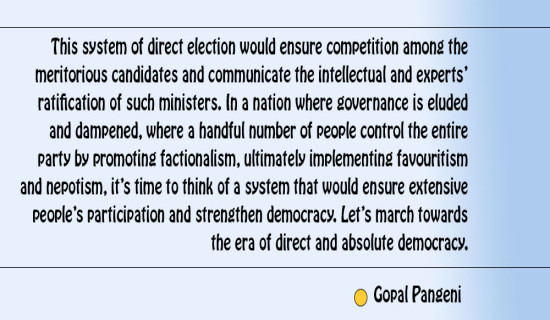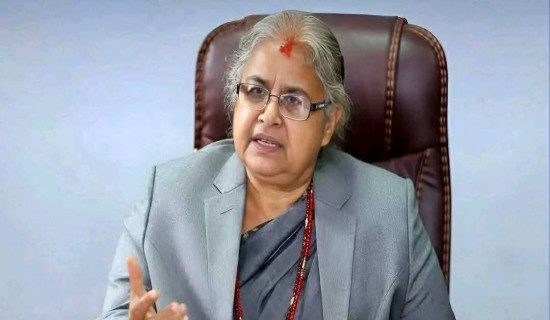- Tuesday, 21 October 2025
Can Election Alone Embody Democracy ?
The year 2024 is witnessing general elections in more than 70 countries, spreading over different continents with a combined population of over 4 billion. Of them, elections in the oldest democracy- the United States of America (USA), and the largest democracy-India remain of paramount importance for democracy’s future, health and impact across the world. The people of India have spoken. The world keenly watches the American presidential election of November 2026. These pivotal elections will impact the health of democracy far beyond their borders.
Democracy was scarce during the Cold War. The collapse of Berlin Wall (1989), end of the Cold War and disintegration of the Soviet Union (1991) in quick succession witnessed the surge of democracy. Francis Fukuyama proclaimed “The End of the History” with no alternative to liberal democracy. Then came the unipolar moment led by the USA that people started standing up for democratic ideals. Undemocratic countries began their transition to democracies, moving slowly and steadily toward democratic governance. Now a quick look across the world about the health of democracy is depressing. Democratic leaders themselves have turned out to be democracy’s worst enemies, and hitting “deep tissues” of democracy - the independence of courts, the media, civil society, universities and sensitive state institutions like the civil service, the intelligence agencies and the security.
Factors
Freedom House reports a consistent decline in democracy from 2006-2021. Several factors attributed to the decline in democracy include: the failure to deliver public goods, and maintain good governance, shifts in geopolitics, technological and economic changes and the rise of authoritarian populism. Contests have been shallow to create a façade of legitimacy both at domestic and international levels. Polarisation and extreme nationalism created “a tsunami that threaten to sink democracies across the globe.” All this is adding up to reducing robust democracies to crude forms, despite a series of elections taking place throughout the world. This has yielded space for far right and left populism. In a show of democracy vs autocracy, competitive authoritarianism, electoral ethnic authoritarianism, and strong leadership have come to play. They consider their opponents as anti-nationals. Professor of global politics, Brian Klaas calls it a “counterfeit democracy.”
Elections are the soul of democracy, yet they are increasingly reduced to look like an “election style event,” with leadership intending to “deconstruct and reconstruct political institutions,” for power. The absence of fairness, integrity and inclusivity puts the entire credibility of the democratic process at risk. Expressions on campaign trails, instead of focusing on larger issues on aspirations of the people, state of economy, security and foreign affairs, only add to heightening political polarisation, religious tensions and deepening social divides. These trends are not only eroding, but also alarmingly reversing democratic process. With these trends at work, Klaas writes “the world is becoming less democratic.” The Economist writes: “2024 will be stressful for those who care about liberal democracy. In theory, it should be triumphant year for democracy. In practice it will be the opposite.”
Nepal’s democracy is grappling with a troubling trend: leaders across the political spectrum - left, right and centre - are increasingly driven by an insatiable thirst for power. This persistent pursuit has done considerable damages to democratic values, and norms. The modus operandi of double standards, deception, and abandonment of principles for power, and corruption and cronyism has been speedily eroding ethical values and compromising integrity. Public trust in state institutions is an all-time low. Unique unity amid vast diversity risks eruptions. A fragile economy makes the social fabric vulnerable to socio-economic unrest. Together, these factors lead to creating several cleavages in the society. Democrats must be on guard for safeguarding democratic pluralism while maintaining unity, security and stability of the country and expediting the process of socio-economic transformation for bettering the life of the common people.
Institutional safeguards
Democracy matters, and the stakes for it have never been higher. Elections alone do not secure a robust and institutionalised democracy in the absence of strong national democratic institutions. Only robust institutional safeguards stand to protect the essence of democracy, as exemplified in 2020 presidential elections in the USA, where Vice President, Michael Pence, stood his ground in a manner “consistent with constitution, laws and history,” and faithfully executing the job with an “open mind, setting politics and personal interests aside.”
Despite significant economic growth, poverty reduction, and the transformative development initiatives including major infrastructure projects launched under Prime Minister Sheikh Hasina’s leadership, they meant little in the absence of transparency, accountability, good governance and protection of human rights in Bangladesh. Cumulative public grievances over repression, manipulated elections and attempts to establish an opposition-free rule in democratic system culminated in students’ protests against the quota system reserved for war veterans of 1971. These protests forced the Prime Minister to flee the country on August 5. Bangladesh serves as a stark reminder of the vital role democracy plays in everyday life.
A 17-member cabinet headed by Nobel laureate Mohammad Yunus has been formed. Given his stature, influence and acceptability at home and abroad, democracy should serve as a stabilising factor, unifying principle and rallying point at this critical moment for Bangladesh. Joint efforts are essential for creating an atmosphere of goodwill, tolerance, harmony and unity among all citizens to ensure internal stability and effective governance to overcome the politics of reprisals and confrontation and also to successfully navigate the complexities of the “second liberation” as proclaimed by Dr. Yunus.
(The author is former Foreign Affairs Advisor to the Prime Minister of Nepal)

















